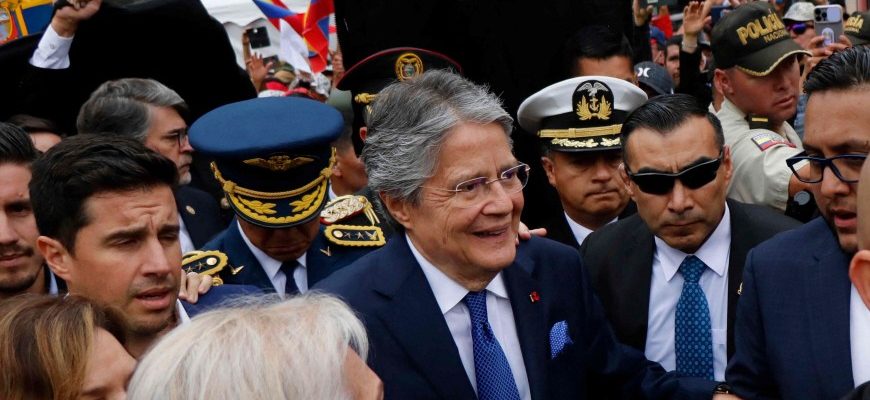The step was not entirely unexpected, but it was a nasty surprise for many Ecuadorians when President Guillermo Lasso announced on Wednesday morning (local time) that he had decided to dissolve parliament. “This is the best way to (…) resolve the political crisis and internal unrest in Ecuador”, Lasso wrote on Twitter.
Lasso is acting within the framework of the Ecuadorian constitution: Article 148 provides that the country’s president can dissolve parliament and call new elections once and only within the first three years of government. This clause is generally called “Muerte cruzada”, in German something like “counterstrike” or “double death”.
However, it is the first time in the country’s history that a head of state has actually used the measure. The dismissal of the parliament can therefore also be seen as a further step by Ecuador on the road to political and social chaos.
Poverty is growing. The crime as well. This is also due to the pandemic
For years the country was considered comparatively prosperous and relatively safe, but today Ecuador is struggling with increasingly serious economic problems and increasing violence and crime. The corona pandemic has hit the nation and its 18 million inhabitants hard. Poverty is now particularly high outside of the cities. In addition, the murder rate has skyrocketed and drug cartels are engaged in bitter turf wars. Again and again there are bloody prison riots.
Meanwhile, the country’s politics are sinking into trench warfare and scandals. In 2021, Guillermo Lasso, a former banker with conservative Catholic ideals and excellent connections to the white and wealthy upper class of Ecuador, was elected president. From the start, Lasso fought fierce opposition from the opposition in parliament and the country’s powerful indigenous groups on the streets. There were mass protests and a general strike, and in 2022 Lasso declared a state of emergency. His approval ratings dropped in the end, the 67-year-old was one of the most unpopular heads of state in Latin America.
Supporters of President Lasso demonstrated on Tuesday in front of the parliament in Quito against the impeachment process, which he is now forestalling.
(Photo: GALO PAGUAY/AFP)
At the beginning of this year, there were also indications of a corruption scandal. Media reports and MPs accused Lasso of embezzlement related to oil transportation contracts. He denied all allegations and pointed out that the signing took place before he took office. Nevertheless, last week a majority of MPs voted to initiate impeachment proceedings.
The military calls for calm. The Indigenous Association to protest
Lasso forestalled this by dissolving Parliament. He now has six months to organize new elections. Until then, the head of state can rule by decree.
While the top military leadership has already stated the dissolution of parliament was constitutional and should therefore be accepted “by all citizens”.the indigenous umbrella organization “Confederación de Nacionalidades Indígenas del Ecuador” (Conaie) has announced protests. He speaks of a “scenario of Guillermo Lasso’s dictatorship“, calls on its members for unity and an extraordinary assembly to “analyze the situation” and make “joint decisions”.

